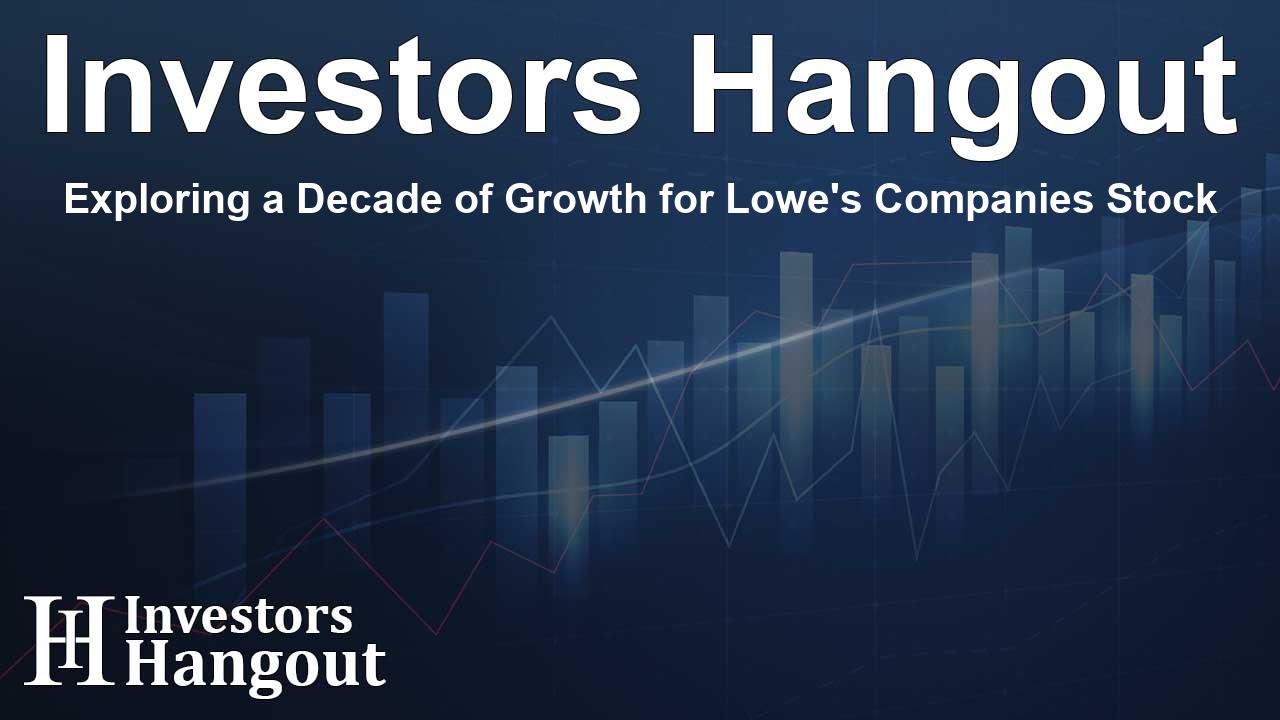Exploring a Decade of Growth for Lowe's Companies Stock

Introduction to Lowe's Companies
Lowe's Companies (NYSE: LOW) has demonstrated significant growth over the past decade. With its focus on home improvement, the company has outperformed market expectations, achieving an impressive annualized return that speaks volumes about its business strategies and operational excellence.
Understanding the Investment Growth
If an individual had invested $1,000 in Lowe's ten years ago, that initial investment would have grown to approximately $3,295.90 today, reflecting the stock's upward trajectory. This growth is based on a recent stock price of $225.11, illustrating the power of investing in quality companies that focus on steady growth and market expansion.
Performance Metrics of Lowe's
Over the last decade, Lowe's has produced an average annual return of 12.65%. This compelling statistic highlights the company's ability to create value over the long term, making it a worthy consideration for potential investors seeking consistent growth.
The Importance of Compounding Returns
One of the key takeaways from investing in Lowe's is the significance of compounded returns. The longer money remains invested, the greater the potential for growth. This principle emphasizes that investing early and wisely can yield substantial benefits over time.
Market Capitalization Insights
As of now, Lowe's Companies boasts a market capitalization of approximately $126.16 billion. This valuation not only reflects its robust business performance but also instills confidence among investors about its future potential in the market.
Conclusion: Why Consider Lowe's Companies?
The journey of investing in Lowe's Companies serves as an excellent case study for both new and experienced investors. The steady growth, significant return over the last decade, and the strong market position of the company make it an attractive option for individuals looking to invest in the retail and home improvement sector.
Final Thoughts on Investment Strategy
Investing in Lowe's is not just about immediate gains; it's an opportunity to be part of a company that continually adapts and thrives in its business environment. As markets evolve, Lowe's has shown resilience and the ability to capitalize on emerging trends in home improvement, ensuring its offerings remain relevant and sought after.
Frequently Asked Questions
What is Lowe's Companies' stock ticker?
The stock ticker for Lowe's Companies is LOW.
How much would a $1000 investment in Lowe's be worth today?
Ten years ago, a $1000 investment in Lowe's Companies would be worth approximately $3,295.90 today.
What has been the average annual return for Lowe's Companies?
Lowe's Companies has achieved an average annual return of 12.65% over the past ten years.
What is the current market capitalization of Lowe's?
The current market capitalization of Lowe's Companies is around $126.16 billion.
Why is compounding important for investors?
Compounding is crucial because it allows investments to grow over time exponentially, maximizing potential returns.
About The Author
Contact Evelyn Baker privately here. Or send an email with ATTN: Evelyn Baker as the subject to contact@investorshangout.com.
About Investors Hangout
Investors Hangout is a leading online stock forum for financial discussion and learning, offering a wide range of free tools and resources. It draws in traders of all levels, who exchange market knowledge, investigate trading tactics, and keep an eye on industry developments in real time. Featuring financial articles, stock message boards, quotes, charts, company profiles, and live news updates. Through cooperative learning and a wealth of informational resources, it helps users from novices creating their first portfolios to experts honing their techniques. Join Investors Hangout today: https://investorshangout.com/
The content of this article is based on factual, publicly available information and does not represent legal, financial, or investment advice. Investors Hangout does not offer financial advice, and the author is not a licensed financial advisor. Consult a qualified advisor before making any financial or investment decisions based on this article. This article should not be considered advice to purchase, sell, or hold any securities or other investments. If any of the material provided here is inaccurate, please contact us for corrections.
